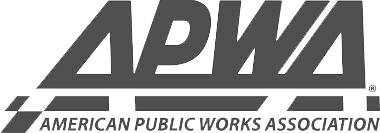
Written By Reid Poling, PE, MS, LEED AP BD+C
Think back with me, if you will, to your graduation. High school or college, this milestone is rightly celebrated as a key lifetime achievement. For me, in true University of Kansas tradition, I walked through the Campanile down to Memorial Stadium to hear speeches and wishes of good luck for the future. Days before, I walked across the stage in the famous Allen Fieldhouse in a separate School of Engineering ceremony with my classmates. Possibilities abound, graduates set off to begin their new careers after what feels like a lifetime of preparation, studying, and exams. However, as much as school can and does teach you, there are some lessons that are just plain difficult to teach and are learned only “on the job.”
Let me take you through some of the lessons I have learned in the past five years since my own graduation. If you are a relatively recent graduate, or perhaps still a student, these words of advice may help prepare you further for life outside of the classroom. And if you have been in the industry a while, this may serve as a reminder of the struggles encountered by a new graduate hire and offer both perspective and guidance.
- Soft skills. “Soft skills” were one of my biggest hurdles as a new graduate entering the workforce. These skills include interacting with people, socially and professionally, which I, along with many other engineers, do not consider to be a strong suit. Certainly, some educational experiences help shape a person’s ability to interact with others in diverse ways. Group projects, part-time jobs, and social clubs/groups provide the opportunity to interact with people, all of which feels like child’s play compared to working in the real world as part of a team to produce a complex construction project.
Occasionally, you will be required to work with clients or co-workers who you do not enjoy or even get along with. Diplomatically and pleasantly maneuvering through the ever-changing scope, schedule, and budgetary requests, concerns, and issues of difficult team members takes finesse and experience. While a portion of that experience comes from workplace mentorship, often much of it is learned through mistakes and personal conflict, which is very difficult to authentically duplicate in the classroom. It is challenging for an analytical, left-brained engineer to comprehend and effectively adjust to not receiving an individual grade at the completion of the assignment in addition to the reality that the team will inevitably succeed or fail as a single unit. Furthermore, finger-pointing, or personal attacks are often seen more as a flaw of the accuser than that of the individual who caused the problem. Many professionals struggle with this concept throughout their entire career, though it is an important skill to understand when aiming to succeed as part of a bigger team. In addition, avoiding negative behaviors and fostering rapport amongst the team both internally and externally produces far better outcomes not only for the project and its stakeholders, but also builds stronger relationships between co-workers, clients, and industry peers. - Leadership. Another soft skill which is difficult to teach is leadership, not to be confused with management. While the basic skills of a manager may be taught including resource management and scheduling, first-hand experience is crucial to developing leadership skills. Sure, there are many classes, books, and even videos that capitalize on effective leadership tips and tricks, all of which can certainly prove beneficial. However, the argument can be made that you need to “walk the walk” in order to learn how to be an effective leader. Leadership is judged by actions, not by intentions. Are your actions respectable by your peers (or your team)? Do you point out the mistakes of others, or do you help them identify how to better avoid repeating those mistakes with constructive feedback? Do you leave others feeling like they have benefited from an interaction with you, or that they are worse for it?
Just as our projects are all unique and different, it is nearly impossible to have a “one-size-fits-all” approach to leadership and management. As a manager delegating further responsibilities to a younger colleague, it is imperative to consider the number of hours they are budgeted for each job, and even their experience in managing projects. Be open to providing support as a mentor, and commit to providing feedback, both good and bad, with an understanding that effective leadership skills take time to develop. Being relatively fresh out of school generally translates into a willingness to learn and take instruction from others, a unique opportunity for a company to help shape and develop their employees. Perspective and empathy for people in varying stages of their career can work wonders to create a better working environment and culture for everyone. - Personal management. Management and leadership skills also apply to how you manage and lead yourself. Keeping track of constantly changing deadlines, a continuous flow of emails, and managing priorities in general are skills that are highly personal and must be learned through experience. An organizational system that works for one person may end up being a waste of time for another. It is up to the individual to determine the method that works best. Theoretically, this is something you may learn in school. Managing multiple classes, jobs, and clubs/athletics all play their part. However, the AEC industry is not as straightforward as school schedules can be. Classes have defined goals, targets, and a syllabus of what to expect in a very set and structured timeframe. It would be so simple if all design projects could exist in the initially defined schedules, but things change, conflicts occur, and delays arise. Projects overlap and designs are modified. Personal management tools learned in school must adapt to the continuously changing landscape of professional life.
Whether or not my struggles with learning soft skills in the workforce resonate with you, there are certainly some things you have learned the “hard way.” Perhaps you excel socially, but tend to struggle with technical tasks. Each day as a professional, there are things that we all do which we never learned in school. Some days the easiest things you do in your career are what you struggled learning in school. For me, the days when I run photometric calculations are a return to the familiar and a welcome reprieve from a hectic work schedule. Nonetheless, just as we did as students, we must continue to push ourselves outside of our comfort zone to learn new skills throughout our careers to remain leaders in our industry.
This article originally appeared in Zweig Group’s weekly business management newsletter, The Zweig Letter.










